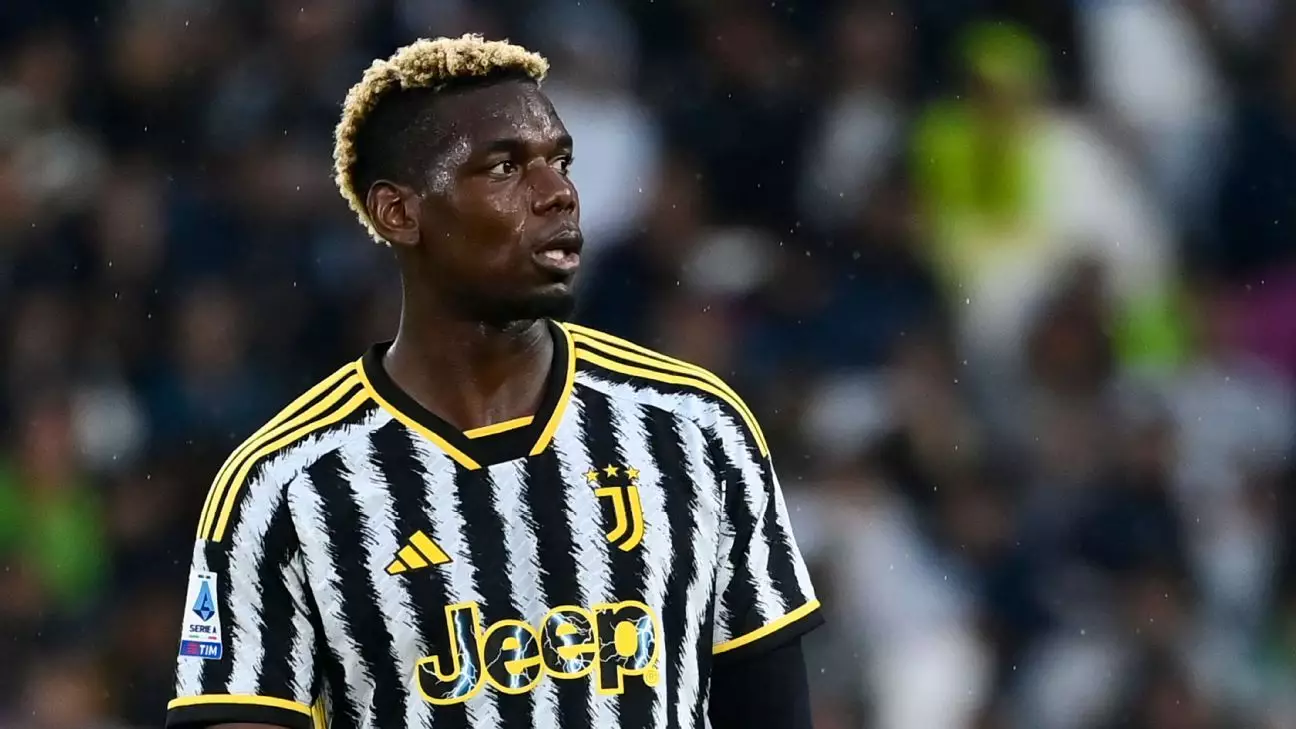In a landmark decision, the Court of Arbitration for Sport (CAS) has reduced World Cup champion Paul Pogba’s doping suspension from an initially stringent four years to a more lenient 18 months. This ruling, confirmed on September 29, 2023, marks a pivotal moment in Pogba’s turbulent career. With this adjusted suspension commencing retroactively from September 11, 2023, Pogba is now eligible to return to professional football by March 2025. This decision has reignited discussions around doping regulations and their implications for athletes, especially those who find themselves ensnared in complex situations.
Upon hearing the CAS verdict, Pogba expressed relief, exclaiming, “Finally the nightmare is over.” His statement reflects not just gratitude but also a palpable yearning for normalcy after a year fraught with uncertainty. Openly maintaining innocence, Pogba insists that his positive doping test stemmed from a nutritional supplement provided by a physician, rather than a willful breach of the World Anti-Doping Agency (WADA) regulations. His stance invites sympathy from fans and fellow players alike who regard Pogba’s turbulent journey as a cautionary tale about athlete welfare and the pitfalls of performance regulations.
Doping in sports is a deeply intricate issue, steeped in the dual need for fairness and the promotion of athlete health. The WADA guidelines dictate that four-year suspensions are standard for doping violations. They can only be reduced if the athlete proves that their transgression was unintentional or if they assist investigations significantly. Pogba utilized this framework to argue for a reduced sentence, successfully navigating the stringent criteria set forth by regulatory bodies. His case underscores not only the absolute accountability athletes face but also the complexities surrounding substance intake, highlighting the need for further education and support for players.
Paul Pogba’s career has been anything but straightforward. Before this setback, he served as a cornerstone player for both Juventus and the French national team, significantly contributing to France’s World Cup triumph in 2018. However, his journey in recent years has been marred by injuries and inconsistencies. Returning to Juventus in 2022 after his second stint with Manchester United was supposed to signify a fresh start, yet it has instead been overshadowed by his ongoing suspension and injuries that have sidelined him during critical matches. As Pogba gears up for a return, the question looms: can he reclaim his spot among football’s elite after such a tumultuous period?
In the aftermath of the ban, sources indicate that Pogba has not been idle. It’s reported that he has been focused on maintaining his fitness despite the lack of competitive play for over a year. This dedication highlights his commitment to returning not just as a player, but as a formidable force on the field. Experts suggest that while regaining match fitness may take time, Pogba’s innate skill and determination could accelerate this process. The real challenge will be reconciling his past and weaving back into a professional realm that has taken on an aura of uncertainty while he was on the sidelines.
As Pogba anticipates his return to competitive football, particularly in the context of Juventus and the international stage, the focus shifts to how he can leverage this experience into a narrative of redemption. The scrutiny surrounding athletes in the modern era is intense, and Pogba must navigate this landscape carefully. He has been granted a second chance, an opportunity that many athletes don’t receive. The world will be watching, and while Pogba expresses eagerness to step back onto the pitch, it will ultimately be his performance there that dictates the trajectory of his remaining career.
Paul Pogba’s recent CAS ruling illuminates the multifaceted nature of doping regulations in sports, the emotional toll on athletes embroiled in doping controversies, and the arduous path towards redemption. His story serves as a salient reminder of the fine line athletes walk and the challenges they face in the ever-evolving world of competitive sports.
